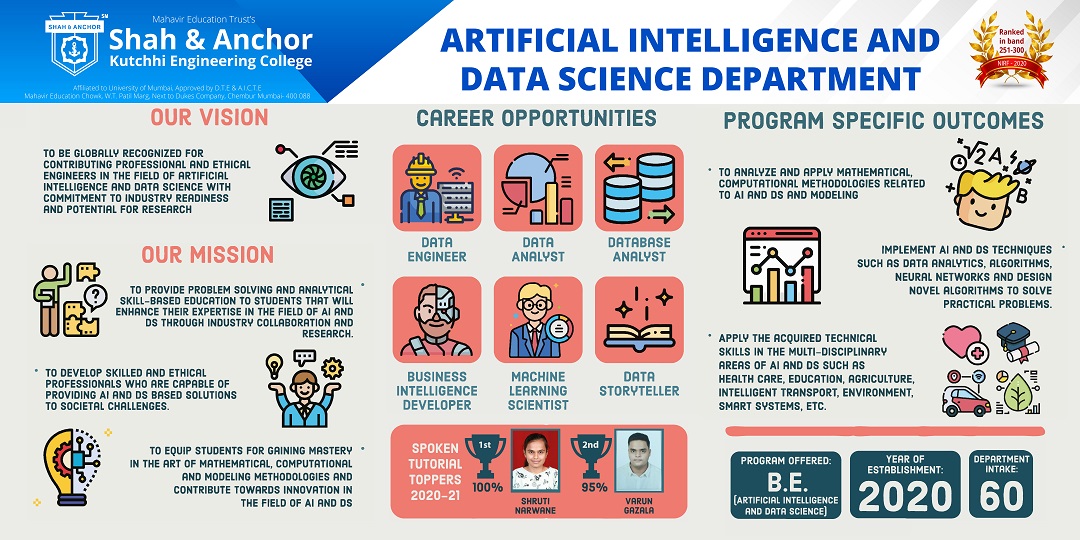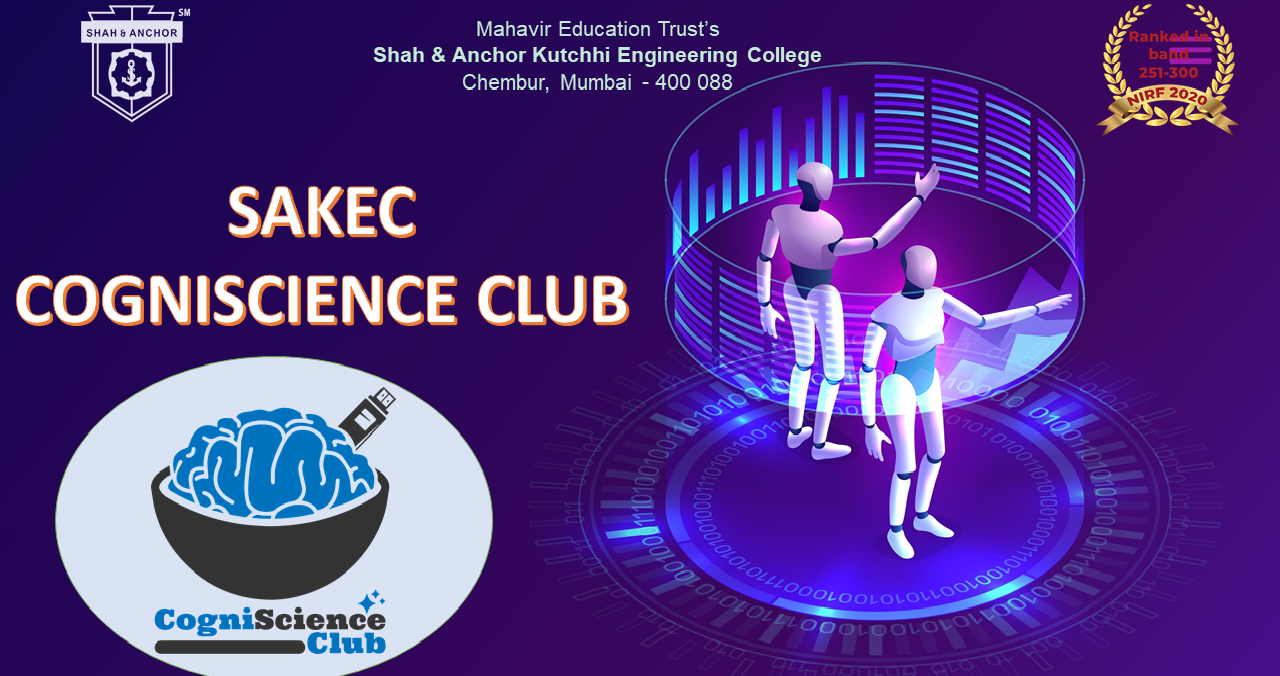Our Vision
● To be globally recognized for contributing professional and ethical engineers in the field of Artificial Intelligence and Data Science with commitment to industry readiness and potential for research.
Our Mission
● To provide problem solving and analytical skill-based education to students that will enhance their expertise in the field of AI and DS through industry collaboration and research.
● To develop skilled and ethical professionals who are capable of providing AI and DS based solutions to societal challenges.
● To equip students for gaining mastery in the art of mathematical, computational and modeling methodologies and contribute towards innovation in the field of AI and DS
About Department

Ms. Tina Maru
I/c Head of Department M.E. (Information Technology) Teaching Experience: 15 Years Area of Interests: Artificial Intelligence, Software Engineering, Robotics.Artificial Intelligence powered by data science is amongst the hottest fields of the 21st century that will impact all segments of daily life by 2025, from transport and logistics to healthcare and customer service. Data has become one of the most valuable commodities. Understanding how to analyse, validate and interpret it to inform decision making are key skills needed to launch a career in this fast-growing sector. Nationally, there is a widely recognized shortage of AI and data scientists to meet the needs of industry. Hence, to cater to the ever-growing demand of engineers in this field, Shah and Anchor Kutchhi Engineering College has introduced a new program of Artificial Intelligence and Data Science from the academic year 2020-21. The major focus of this programme is to equip students with the ability to design intelligent solutions to problems in a variety of domains and business applications and fields such as natural language processing, text mining, robotics, reasoning and problem-solving.
Program Intake
Program Offered |
Sanctioned Intake |
Year of Establishment |
B.E.(Artificial Intelligence & Data Science) |
60 |
2020 |
|
Computer Engineering Program and Information Technology Program of the college have been awarded accreditation by National Board of Accreditation (NBA) from A.Y. 2019-20 for 3 Years. |
News and Updates
MACHINE LEARNING WITH WEB DEVELOPMENT
KAGGLE for data science
AI Appreciation Day 2022







